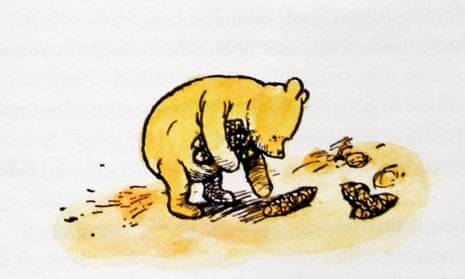The brave and resourceful small girl in Arthur Ransome’s 1930 classic, Swallows and Amazons, is called Titty. But not, we learn, in the new film version being made by the BBC. There she will be renamed Tatty, to avoid “too many sniggers”.
It’s not the first time this indignity has befallen Titty, who was named after the traditional English fairytale, Titty Mouse and Tatty Mouse, in a more innocent age. (According to the Online Etymological Dictionary, the word “tits” only started being associated with breasts in about 1928.) She was rechristened Kitty when the story was televised by the BBC in 1963, though she re-emerged with her original name in the 1974 film adaptation, and in a later radio broadcast in 2012.
Names have long been a hazard in children’s literature. The headmistress and popular children’s writer Elinor Brent-Dyer provides two more examples of how an original text can be rendered sadly inappropriate over time. In her 1930 story The School by the River she wrote: “The Principal allowed the girls much liberty, but intercourse with the men from the Academia was strictly forbidden, and any girl who transgressed this rule, and was found out more than once, was sent away.” Use of the word intercourse with reference to sexual activity has been current since 1798, so 1930 seems quite late for Brent-Dyer still to be using it in its original sense.
Twenty years later, the same author ran into more potential problems in The Chalet School and the Island. Fiery 15-year-old Annis exclaims at one point: “That doesn’t seem to have occurred to Aunt Margaret. I suppose she thinks that all that matters is a decent screw and holidays.” Publisher Collins waited until 1999 and a new edition before finally changing “screw” to “salary”.
“Ejaculate”, another potentially troublesome word, was at one time popular with authors as an alternative to “exclaimed”. Sir Arthur Conan Doyle – not quite a children’s author but always loved by young readers – used it 23 times in his Sherlock Holmes stories, most arrestingly in The Man with the Twisted Lip (1891), when Watson, after dozing off in the great detective’s study, reports that “a sudden ejaculation caused me to wake up”.
As a doctor, Doyle would have known the term in its sexual context, but at a time when open discussion of such matters was reserved for medical textbooks, could have thought that its use in another sense was perfectly justified. More probably, he simply missed the double meaning altogether. This was also true years later of the young Dr Seuss, whose first publications in the 1930s, Boners, More Boners, Still More Boners and The Pocketbook of Boners are now collectors’ items.
“Cock” as slang for the male member has been current since 1610. Yet in the chapter headed Aunt Jane’s Treat in Richmal Crompton’s 1924 novel, William the Fourth, one of William’s respectable maiden aunts accompanies him to a fair, where she rides on a merry-go-round, mounting – as the author puts it – “a giant cock” … “It seemed to give her a joy that all her blameless life had so far failed to produce,” it says.
Something similar, again involving a cockerell-shaped fairground attraction, takes place in Angela Thirkell’s 1939 novel The Brandons. This example of light fiction was aimed not at children but at a largely female, middle-class audience whose ultra-respectability amounted to another form of assumed literary innocence.
Crompton was a blameless ex-classics teacher, and Thirkell was the distinctly snobbish granddaughter of the pre-Raphaelite artist Edward Burne-Jones. It is unthinkable that either had any idea of another possible reading of what they had written.
The publishers and editors who passed these passages may have been similarly ignorant, or they may simply have decided to leave well alone. Resetting odd pages in any reprint can be an expensive business, and any intervention could also have run the risk of offending otherwise upright and high-earning authors who may not have even recognised any double meanings had they been brought to their attention.
Today, double entendres are the regular stuff of comedy, even when writing for children. When AA Milne referred to Pooh “poohing in the sun” in a poem in The House at Pooh Corner, he unleashed decades of quiet merriment among parents and grandparents aware of how the meaning had changed since they were six. But perhaps the most devoted Milne fans reading to children now would draw the line at two American spin-offs, both picture books: Marlene Brown’s Cooking with Pooh (1995) and Isabel Gaines’s Pooh Gets Stuck (1998). Those earlier, unconscious verbal slips were so much funnier.
